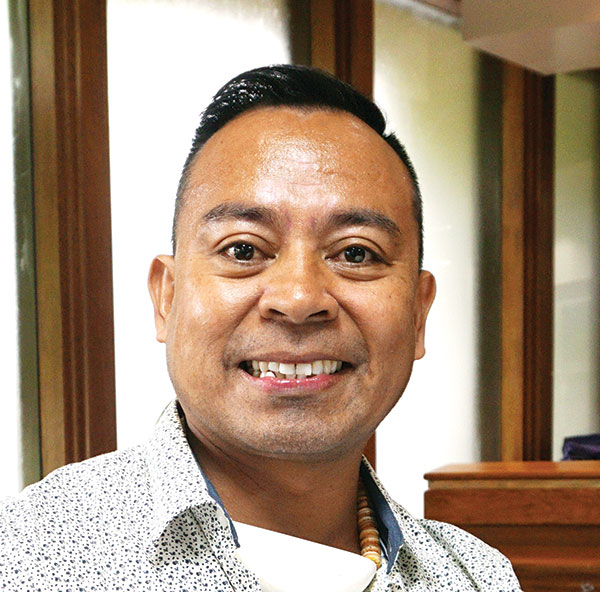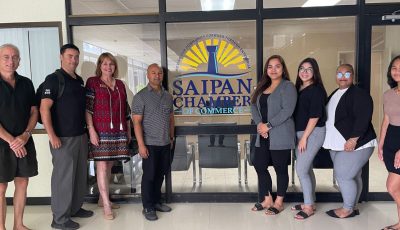FUTURE OF CNMI WORKFORCE
NMTI looks at tweaked bill for stable labor pool

Senate Bill 20-106 will will help NMTI to have specific targets and measurable outcomes from skills training that would develop for the CNMI and help with the CW issues, according to Northern Marianas Trade Institute board chair John O. Gonzales. (Bea Cabrera)
Editor’s Note: The following is part of a series that examines what is being done today to prepare for the end of the foreign worker program in 2029.
Fourth part of a series
The Northern Marianas Trades Institute is looking forward to a revised version of a bill that would’ve allowed it to receive public funds after Gov. Ralph DLG Torres vetoed an earlier measure.
NMTI board chair John O. Gonzales said a new bill is needed to stabilize the CNMI labor pool beyond the expiration of the U.S. Workforce Act in 2029.
“We are bracing ourselves for a new bill, a totally tweaked bill from the one that the governor…vetoed last March. Sen. Justo Quitugua (Ind-Saipan) has introduced Senate Bill 20-106 and it is now awaiting comments among the stakeholders such as the Department of Labor, Northern Marianas College, Public School System, and, of course, NMTI as beneficiaries of that bill,” he said.
“I believe it will go through because it’s a result of the tweaked language and integrated the concerns of the governor in terms of funding, structure, and approach to ensuring a comprehensive commission to workforce development,” he added.
In the event the proposed bill becomes law, Gonzales believes this will help NMTI have specific targets and measurable outcomes in skills training that would develop a workforce for the CNMI and help with the CW issues.
“When the bill pushes through, it will place NMTI in between the PSS and NMC in terms of hands-on, apprenticeship, industry occupational subjects and fields such as bookkeeping, accounting, technicians, mechanics, construction and carpentry,” he said.
“We are actually implementing it already and the training is available. We love it because it is the result of the hard work and cooperation among all the stakeholders with the end goal of everybody benefiting. No redundancy, overlap or duplication, and maximizing our resources,” he added.
According to Gonzales, expanding NMTI’s list of additional courses is in the pipeline. “We, the [board of directors] of NMTI, have requested [chief executive officer Agnes McPhetres] and her faculty and staff to develop a larger curriculum that is more expansive, more comprehensive, to anticipate the action mapping pipeline or training design that we would like to work on sooner,” he said.
“I know they are currently developing the training courses for our review, presentation, and adoption, hopefully in the next meetings of the NMTI board,” he added.
Last month, an Education Summit was held in cooperation with PSS, NMC, NMTI, Labor, and the Saipan Chamber of Commerce.
“The purpose of that is to chart a comprehensive workforce educational commission to regulate and to answer the question of what would NMC, PSS, and NMTI’s role be in building economic and educational opportunities? It is the overarching goal for the CNMI in ensuring that we provide a quality workforce curriculum and prepare a gainfully employable and credible workforce,” Gonzales said.
“The U.S. Workforce Act is a window of opportunity for us that we would like to think it will be our last. The third time is a charm but we need to know failure is no longer an option. That’s why we must learn a trade and get paid so we can develop a sustainable and resilient workforce of our own to go forward,” he added.



























